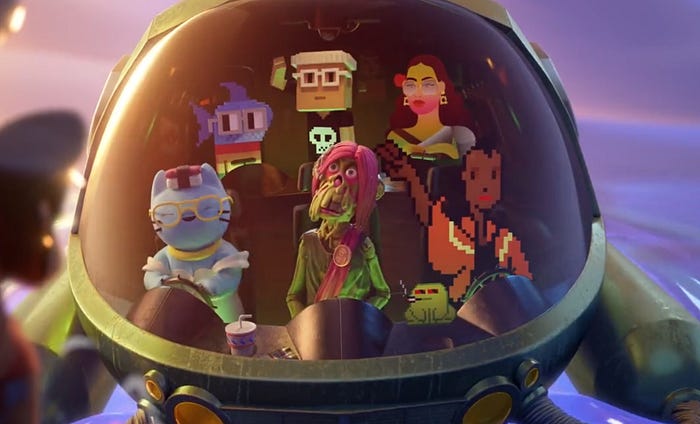
I am still skeptical about the notion of virtual land and the Metaverse as a whole.
I have yet to find someone who can properly articulate what the metaverse is and why owning virtual land in the metaverse matters.
The basics are easy to understand. The first time someone explained the metaverse to me, they drew an analogy to Ready Player One. Simply put there will come a day when people care about their virtual status more than their physical state in life. This will excelerate over time as we spend more time on the internet. Owning virtual land in the metaverse will matter for the same reasons owning land in real life matters…location, proximity and scarcity.

Virtual and augmented reality will play a key role in the metaverse. We will all be wearing VR headsets and do everything from working, playing and socializing in a virtual space. That was the premise behind Mark Zuckerbergs radical shift to the Meta rebrand for Facebook. Given the amount of time we will spend in the metaverse, the location of our metaverse land and proximity to other land owners will be a key factor of our virtual social standing.
However speculation around these radical shifts in culture have yet to bear tangible results. We have been talking about the metaverse for a few years now and aside from a small, niche segment of our society I don’t know many people who spend much time in the “metaverse” as we have come to understand it. The notion of metaverse land having value is also nebulous at best given that scaricity drives the value of real land while metaverse land is infinitely scalable.

The ferver around metaverse land peaked early last year with the Otherside mint from Yuga Labs. Since then the speculation around virtual land has undoubtedly cooled with the onset of crypto winter.
Meta is struggling to get traction around Horizon Worlds and had to ask its own employees to spend more time working in the metaverse despite their reluctance to do so.
Decentraland was reported to have surprisingly low user counts late last year and users claimed that it felt like a lonely ghost town.
With all that being said, I am still keen to see how the metaverse and virtual land component of Web 3 plays out in the coming years. If digital items can have speculative value, it goes without saying that virtual land should also have value especially if we are spending more time in the metaverse.
However the challenge lies in virtual land being inextricably linked to the metaverse. The success of virtual land and realization of its speculative value is tied to the success of the metaverse and I am not quite sure that will happen anytime soon.
Keen to hear your thoughts on the matter.
Image: Dall E 2 — via NightCafe Studio
Input: Metaverse Traveler
As always, thank you for reading.
Follow me on socials:
https://linktr.ee/wasifmrahman